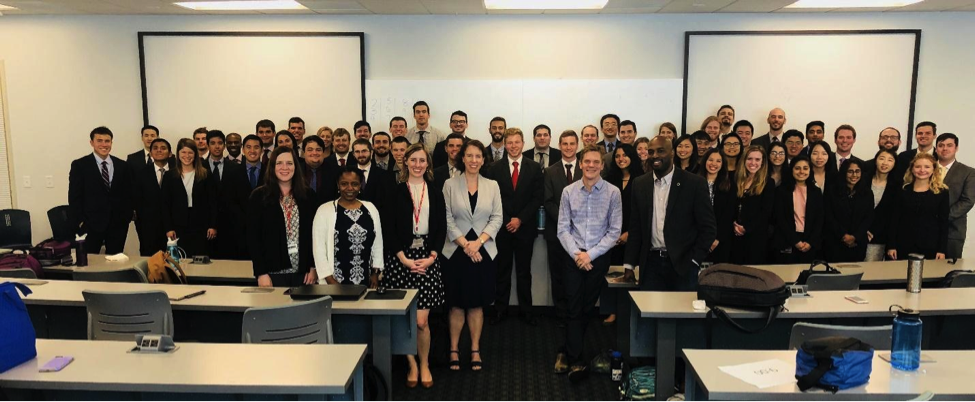What did you say?
How Data Science is about more than just the numbers

From the outside looking in, one may expect a Master in Analytics degree program to be highly technical, with students hunched behind computers all day. However, here at the Institute, it is not just about numbers. You can be technically brilliant, but without the ability to communicate what you have done, how are you going to convince that executive your idea is the best? How are you going to explain to your colleagues what analytical techniques you used? Or most importantly, how are you going to tell your significant other and family members what you did at work today without them giving you that look of “what??”
During the summer, we started our journey towards not only becoming good technical analysts, but also good communicators. After two team presentations in bootcamp, we finished off the summer with a weeklong communication training workshop where we worked individually and in teams. Along the way, we received constant feedback on our verbal communication skills such as tone, inflection, body language, eye contact, and even the content and layout of visuals. The takeaway: organize, practice, and be confident (i.e. Power Pose).
Coming into the program with work experience, I already felt comfortable with my communication skills. I thought: “I have run meetings and communicated with all levels of an organization, my skills can’t be that bad.” I was in for a surprise. I realized most of my communication experience was over the phone, and seldom was it up to the standards of the Institute. Not only do I have stage fright, I found that I have nervous tendencies that I never noticed before. I put my hands in my pockets, I shift my weight when presenting, and I struggled with getting my message across with enthusiasm.
In school and books, you see a continual buildup of a story. It twists and turns and eventually, near the end you get to the peak of the story. In business communication, time is money. We learned to start with your strongest point first; we call it your bottom line up front. Let the listener know why they should listen to you instead of going back to checking their email. Start with excitement and a purpose and remind them of that purpose throughout. Tell them what you plan to say, tell them your story, and then close with what you told them and what they should take away or do.
Communication week challenges you. However, no matter how afraid you are, everyone is supporting you. Everyone here knows what you’re going through, and you can lean on your classmates for support, advice, and comfort. You may never like being up in front of a crowd, but here at the Institute you are given the tools, practice, and support to be the best you can be.
Columnist: Andy Dotter
Data Column | Institute for Advanced Analytics
The Collaborative Blog for Students in the Master of Science in Analytics
